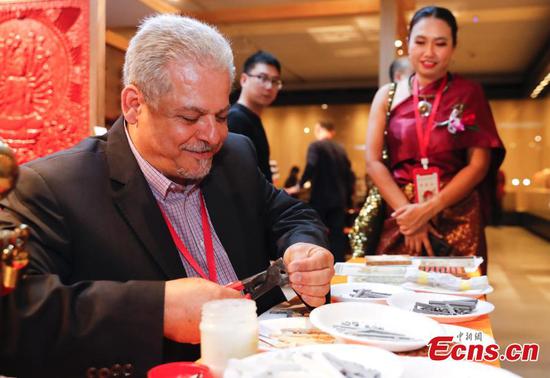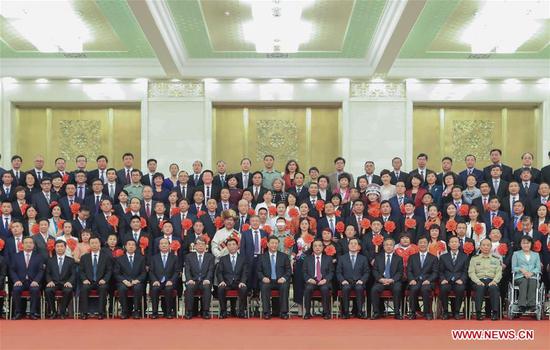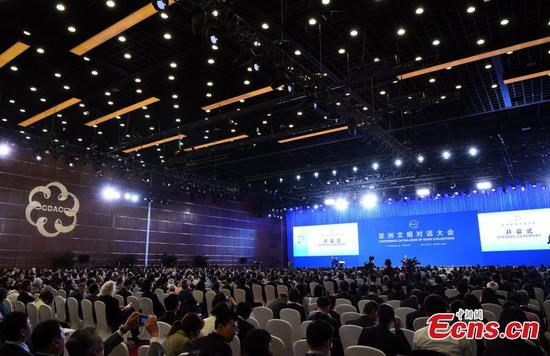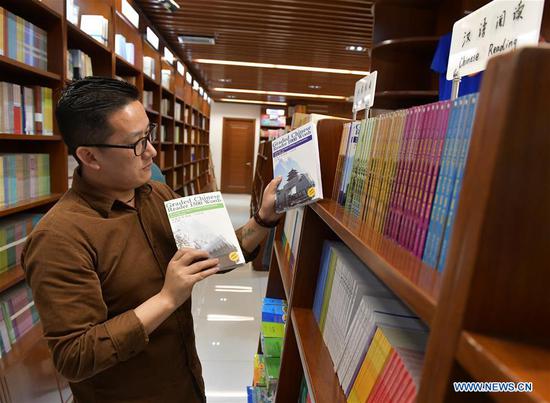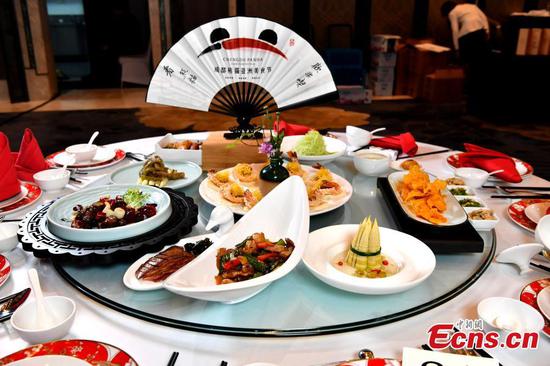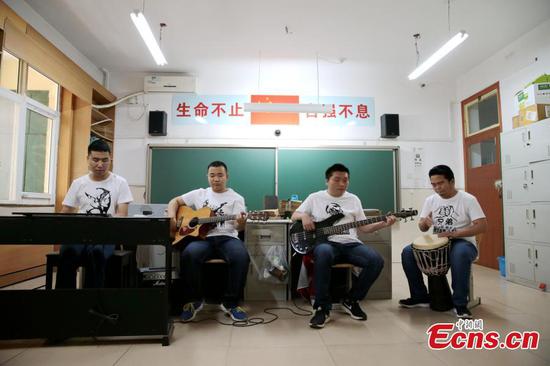
Editor's note: The article was translated and edited from an editorial piece published initially on the Taoranbiji official WeChat account.
The situation has evolved fast after the 11th round of China-U.S. trade talks. China reiterated its position, refuted America's accusation of "backpedaling on commitments".
If the U.S. still disregards the principle of equality and mutual benefit and believes that extreme pressure will work, China has no other option but to take countermeasures.
The U.S. wielded the tariff stick, only to drive backlash from its industries and capital markets.
Industry groups in the U.S., including the National Retail Federation, the Consumer Technology Association, the American Apparel &Footwear Association, and the American Soybean Association, made a statement on May 13 against Washington's plan announced the same day to raise tariffs on 300 billion U.S. dollars' worth of Chinese goods, urging both parties to bring trade negotiations back onto the right track.
In response to Washington's decision to lift tariffs on 200 billion U.S. dollars of Chinese imports from 10 percent to 25 percent and China's countermeasures, the U.S. stock market plunged on the same day.
The Dow Jones Industrial Average dropped 2.38 percent, marking the biggest one-day loss since January this year; the S&P 500 and Nasdaq Composite slumped 2.41 percent and 3.41 percent respectively.
Wishing to increase pressure on China while having scruples over bitter domestic opposition, the U.S. is in two minds.
On the one hand, the U.S. keeps says that "The Chinese economy is not in very good shape and China wants to reach a trade deal with the U.S." Nothing is more pointless, after so many rounds of talks than still arguing about which side wants a deal more.
On the other, Treasury Secretary Steven Mnuchin, one of America's chief negotiators, noted that "We're continuing discussions" and he "will go to Beijing at some point in the near future to continue those discussions."
As reported on May 14 by Reuters, the U.S. Treasury Department spokesman said that Mnuchin would plan for another trade meeting in China at some point soon. However, the Chinese Ministry of Commerce on the May 16 responded that "China is not aware of the United States' trip plan". What does it tell us about the current situation?
First, what the U.S. does at the moment, be it to re-emphasize continuing talks, or to belittle China's economic development, aims mainly at restoring confidence and stabilizing the capital market.
Up until now, the U.S. has been dampening prospects for further talks by playing little tricks.
On May 15 local time, Donald Trump signed an executive order that declared a national emergency and banned American companies from using telecommunications equipment made by firms posing a national security threat, a move widely seen as to shut Huawei out of the U.S. market.
Instead of expressing any sincere wish to carry on with negotiations, the U.S. is ratcheting up pressure on China.
The fact is that the two countries so far have already seen through each other' positions and bottom lines. The entire world knows this well, too. Earlier, in spite of the extreme pressure from the U.S., the Chinese delegation still chose to go to Washington to attend the 11th round of negotiations.
Nothing can send a more resounding signal of China's sincerity for talks.
However, such goodwill did not draw a warm response from the other side. Instead, some interpreted it as a sign of weakness.
Now that rationality does not chase away greed, China has no other choice but to follow an alternative path. Second, if the U.S. was bent on ignoring the will of the Chinese people, Chine would no longer respond in any meaningful way.
Washington is also talking about coming to Beijing for another meeting and eying the upcoming G20 summit in Osaka for new talks.
Without substantive actions, negotiations are just wild-goose chase.
By expressing three major concerns for the first time after the 11th round, Beijing was actually showing its "red line" to the U.S. and the rest of the world. This represents China's stance and the will of the Chinese people.
Think about this: would the Chinese people say yes to the government signing a trade deal proposed by the U.S. and allowing the tariffs to stay?
For the previous talks, China worked day in and day out in the hope of facilitating positive outcomes. However, sincerity and goodwill were seen by some as a sign of weakness.
That being the case, China may as well bring all negotiations to a full stop, taking countermeasures while getting back to our usual way of doing things.
Flexibility does matter for negotiations, but the unprincipled compromise would never deliver win-win cooperation.
Some say that since the U.S. is stronger than China, China will suffer more in the trade war.
Such an argument is only valid based on economic grounds. However, if a full-blown trade war starts, who can guarantee that the economy would be the only factor that matters in the equation?
What American's sudden backflip has brought to its public is nothing less than a total shock.
Public opinion in China, or in other words, what's in the mind of ordinary Chinese people, is rather straightforward. The Chinese love peace, and they have done business very well these years. What most Chinese believe is that amiability brings money and that everyone can work together to make money.
Now, since the war has begun, we may as well make it clear that the actual cost of extreme pressure will far exceed the imaginary benefits.
(If you want to contribute and have specific expertise, please contact us at opinions@cgtn.com)










